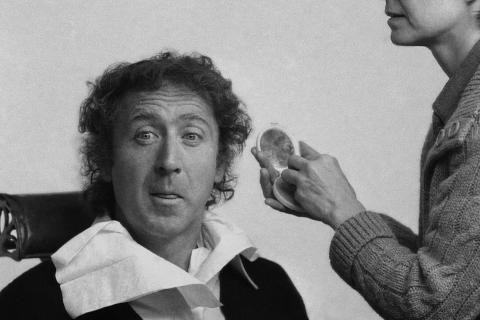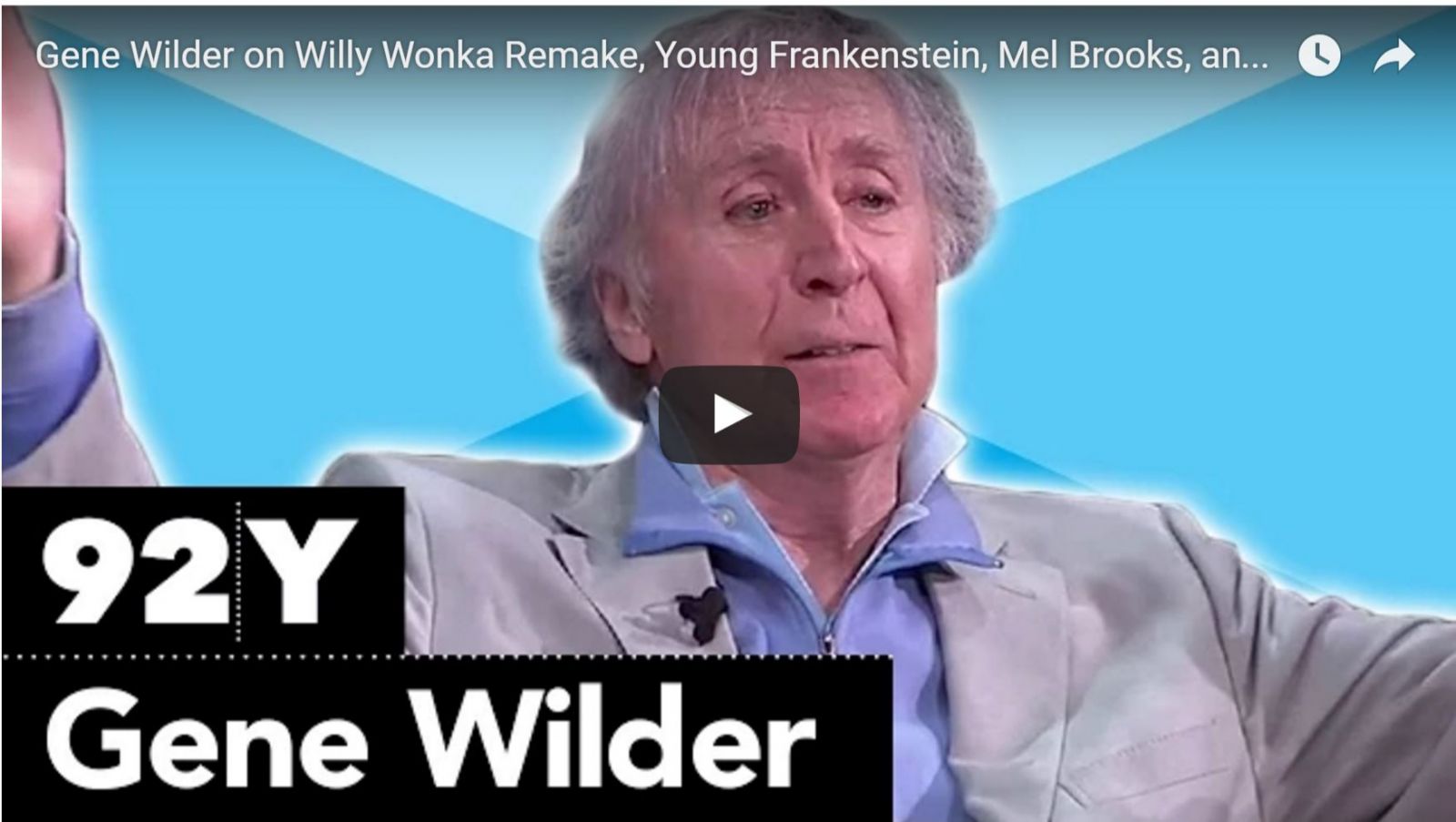"The swearing and the loud, the bombing uh, after a while I said, they were dirty and once in a while a nice, a good film [came along]. But not very many.
“I don’t mean this when I was just starting out, but later on. And I said, ‘I don’t know.’ If something came along that was really good, and I was good for it, I’d be happy to do it. But not too many came along
I didn’t want to do 3-D, for instance.”
These were not the words of a stage-trawling artiste appalled by the vulgarity of an ever-coarser cinema. They didn’t come from a pompous aesthete. They were delivered by someone else, someone unexpected. They were delivered by Willy Wonka. The Waco Kid. A guy who fucked a sheep.
Gene Wilder, who died Sunday night at 83 years old, was not only a comic genius, but one to whom other comic geniuses could turn to actualize their ideas, whether it was Mel Brooks, Roald Dahl, or Richard Pryor. He sprang them improbably to life. He was also an able sparring partner, a dashing leading man, and a slapstickian Laurence Olivier. And for 25 years, from 1967 through 1991, he was one of the most dependably odd and inviting actors in Hollywood. And then, he wasn’t.
“I like writing books,” Wilder told Robert Osborne at New York’s 92nd Street Y in 2013. This was 22 years removed from his last feature film experience, Another You, his last of four collaborations with Pryor. By then, he’d published six books, among them a novel about an early-20th-century concert violinist. As an actor, Wilder was a little like Will Ferrell if Will Ferrell stopped trying so hard. He could do manic or peeved or perplexed. He could be boyish or outraged, a goof or a tyrant. As a movie star, he was off-kilter in a way that made you lean closer, not back. Ask anyone you know today, particularly those between the ages of 30 and 60, what they think of Wilder. If you get a bad review, I’ll buy you a sandwich.
So it is strange that Wilder up and disappeared from the movies. He was beloved, which is something we can rarely say about our stars now. Wilder appeared in some bombs, the kind that scuttle some careers as an actor approaches middle age—the late ’80s and early ’90s were more trying than the halcyon days of Blazing Saddles and The Producers. (Wilder has said he was hurt by the poor reception of Haunted Honeymoon, a film he wrote, directed, and starred in with his late wife, Gilda Radner.) But Wilder’s movies had an absurd, often beautifully vulgar tint to them. Young Frankenstein doesn’t feature “bombing” or “3-D,” but it does feature an ogre-like reanimated corpse pleasuring Madeline Kahn. But don’t be fooled by his comic career—he began as something more serious.
Wilder was an uncommonly curious and sensitive performer, who was bullied and sexually assaulted as a teenager at Black-Foxe, a Los Angeles military school he attended. He was picked on for being Jewish. When he found acting, he found Bertolt Brecht and Arthur Miller, and worked in the Stanislavski Method at the urging of Charles Grodin, another specific comic marvel with severe tendencies and classical training. Wilder’s first film role was in 1967’s Bonnie and Clyde, which cracked a leaking dam and ushered in a torrent of Hollywood filmmaking creativity. It was a fitting arrival. Years earlier, Wilder had met Mel Brooks while acting opposite his wife, Anne Bancroft, in Brecht’s Mother Courage and Her Children.
Brooks found a muse in Wilder and made him a star, and that was all that was needed to make a legendary comedy career. But in this conversation with Osborne from 2013, and others that came before it, Wilder is resigned to his own absence—the Blazing Saddles Bluray collects conversations with a quizzical, sighing Wilder, similarly reflecting on his career. He had gotten used to answering these questions over the years, accepting the pleas of strangers begging Willy Wonka for an autograph, or an Everlasting Gobstopper, or just one more movie. In 2008, he told Alec Baldwin in a special on Turner Classic Movies: “I don’t like show business, I realized. I like show, but I don’t like the business.”
Wilder’s sensitivity and curious mien confused some, but he lived an extraordinary and sometimes painful life—he lost his wife, the angelic Radner, when she was just 42. He also had a front-row seat to the horrors of addiction that befell Pryor on the set of their movies. Maybe watching them, he learned something about how to spend his time. In his 2005 memoir, Kiss Me Like a Stranger: My Search for Love and Art, Wilder writes about Radner’s bulimia.
“While Gilda was throwing up in our bedroom in Connecticut, I was writing a comedy in the room just below her,” he writes. “It sounds oxymoronic, but absurdity was a familiar guest now.”
Absurdity marked so much of his life—the roles, the relationships, the particular crevasse he occupies in the memories of a lot of grown-up kids. He missed a generation by stepping away when he did. Not that anyone blames him.



Spread the word